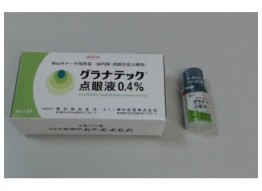Mitomycin injection 2 mg for cancer treatment (antineoplastic, antitumor)
What are Mitomycin injections 2 mg for cancer treatment (antineoplastic and antitumor)?
Mitomycin is an anti-tumor quinone naturally found in Streptomyces caespitosus. It selectively inhibits synthesis of cancer cells' DNA. While administration of this medicine can cause some side effects (delayed bone marrow toxicities, lung fibrosis, renal damage), these adverse effects are much less than those of other antineoplastic drugs, making Mitomycin injections very popular chemotherapy drug. An active principle possesses high molecular weight and is relatively hydrophobic.
Mitomycin injections are effective for the treatment of chronic lymphocytic and chronic myelocytic leukemias, gastric cancers, colorectal and lung cancers, colorectal and breast cancers, cervix and cervix cancers, cancer of the endometrium, bladder cancers, head and neck cancers, and some other diseases. Clinical studies proved that early instillation of this drug is effective in preventing tumor recurrences in low-risk non-muscle invasive neoplasms.
Active principles: mitomycin C
Amount: 10 bottles
Maker: Kyowa Kirin Co., Ltd., Tokyo, Japan
Indications: improving the symptoms of cancer, including following:
- chronic lymphocytic and myelocytic leukemia,
- gastric cancer,
- colorectal cancer,
- lung cancer,
- pancreatic cancer,
- liver cancer,
- cervix cancer,
- endometrium cancer,
- breast cancer,
- head and neck cancer,
- bladder tumor.
How to use
This medicine is generally administered intravenously. Your doctor may decide to perform intra-arterial or intrathecal injections. Intravesical injections are used in the treatment of bladder cancer.
The duration of the administration should be prescribed by the doctor in charge based on the concomitant drugs and patient's response.
Contraindications: do not use for pregnant and breastfeeding women. Do not use for patients with hepatic dysfunction, kidney dysfunction, infection, or varicella.
Important information
If an allergic reaction occurs, patient needs to stop using the medicine and consult with their doctor. If patient is taking any other medication or treatment, they should consult with their doctor in advance.



